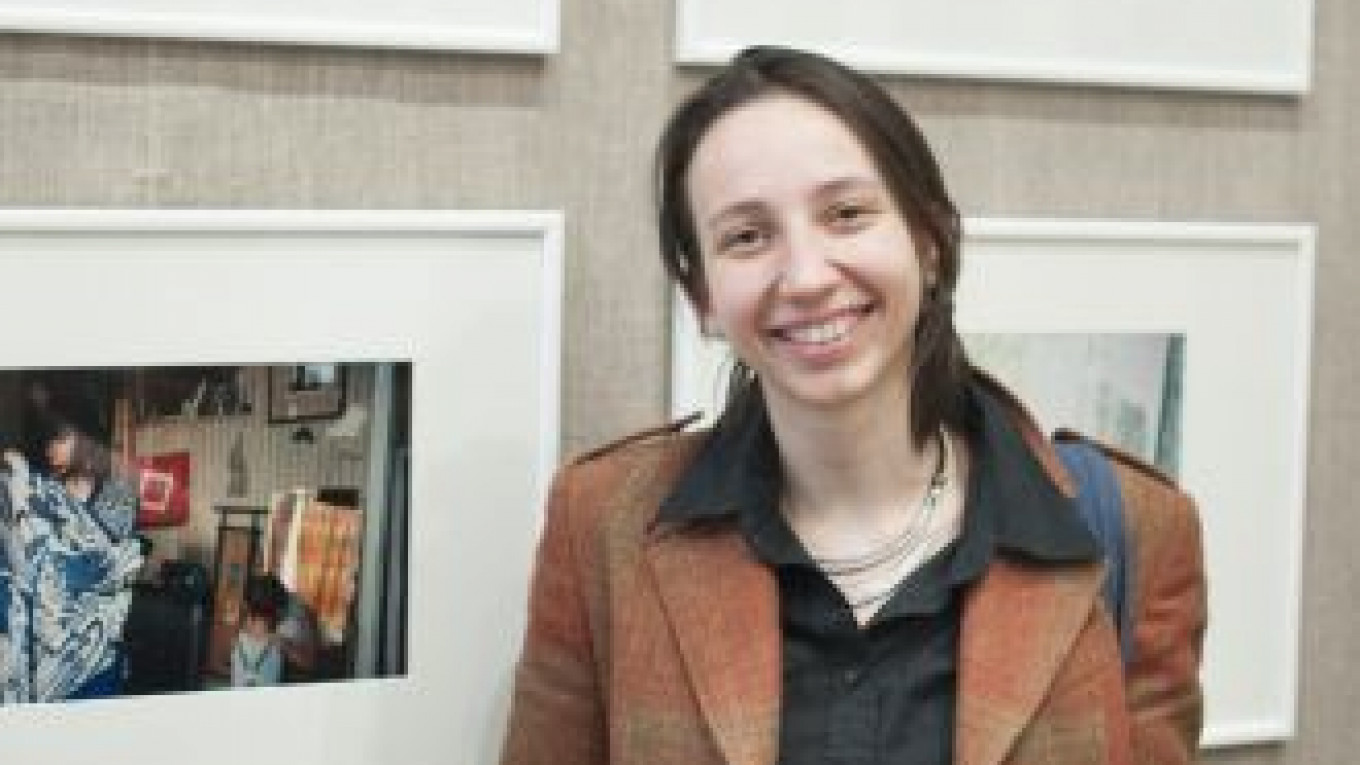Living day by day in a certain place can make even the most magnificent view look ordinary. But what it looks like to an outsider is hard to guess. A new exhibit in Moscow shows Russians what they look like through the eyes of Dutch photographers.
The Russian-born Irina Popova studied art in the Netherlands and currently lives there. While abroad, she saw the works of foreign artists who were photographing Russia, and this inspired her to set up an exhibition called "Dutch and Flemish Photographers About Russia," currently on display at the FotoDoc Center of Documentary Photography.
"I think it is of social importance to show Russian photographers an alternative way of photographing their own country because, having lived here all their life, they just can't see it the way a foreigner can," Irina Popova said.
For the exhibit, Popova gathered the work of 10 different photographers. These works include Bertien van Manen's photo chronicles of her travels around Russia from 1991 to 2009, Pieter ten Hoopen's photos featuring the daily lives of people who live near the Kitezh mythical city and Carl de Keyzer's Realist-Surrealist report of Russian prison camps and prisoners.
The exhibition will travel through 10 Russian cities over the following weeks. In every city, one of the photographers will come to introduce his work. The presentation in Moscow was held by World Press Photo award winner Rob Hornstra and writer and filmmaker Arnold van Bruggen. Together they constitute what is called "The Sochi Project."
"The Sochi Project" aims to show an alternative image of the region around Sochi where the 2014 Olympic Games will be held. That is, an alternative from the widespread image that the Russian authorities are trying to create.
"We thought it was astounding that this multibillion-dollar happening is taking place in such a contested area. We realized that there were going to be many changes to the original seaside resort and decided to monitor them and attract attention to them," Hornstra said.
That is how their first book, "Sanatorium," came about. Sanatoriums are characteristic for the old Sochi but will no longer exist after the Olympics because they will be converted into four- or five-star hotels.
The five-year project started in 2009 and was originally based on crowd funding, but it is now more focused on selling the books that the project publishes than raising funds through the website.
"Now that the project has picked up, we have been sucked into a vortex of hard work, which leaves us with very little time to do crowd funding," Van Bruggen said.
Photography and the written word are closely connected in "The Sochi Project."
"We always travel together, so I alternate between doing interviews and holding up Rob's camera lights," Van Bruggen said. "This is a good combination because we always experience each other's stories as well as our own. We reinforce each other's work, and we continuously propel each other forward toward new ground."
"Arnold constantly gets into contact with people he would normally never meet because I approach them through photography, and vice versa. We are completely linked together," Hornstra added.
For the past 10 years, Hornstra has worked on many projects in Russia. The reason he started portraying this country in his photos seems almost incidental.
"Part of the story is that I feel attracted to the visual language that this country has," he said. "But the reason I still work here is because I am a person that likes to immerse himself into a subject. Unlike the average photojournalist, I eschew traveling. For me, the challenge lies in broadening my view and finding more topics in one area."
One of the many remarkable facts about "The Sochi Project" is that neither of the founders speak any Russian. They understand a fair amount of Russian now because they have spent so much time here, but they still do their interviews mostly with the help of local fixers. These fixers also share with them their personal knowledge about the area.
The project ends when the Olympic Games begin, but that does not mean that Hornstra and Van Bruggen's work will be done then. By that time, there will be a large exhibition of their work in Moscow, and more exhibits are planned in Antwerp, Chicago and New York.
"The Sochi Project" will stay in Moscow until March 24. It is displayed at the FotoDoc Center of Documentary Photography, located at 57/6 Zemlyanoi Val. Metro Kurskaya. Phone: +7 495-623-4401. Entrance is free. For more information, see www.fotodoc.liberty.su and www.thesochiproject.org
Contact the author at [email protected]
Related articles:
A Message from The Moscow Times:
Dear readers,
We are facing unprecedented challenges. Russia's Prosecutor General's Office has designated The Moscow Times as an "undesirable" organization, criminalizing our work and putting our staff at risk of prosecution. This follows our earlier unjust labeling as a "foreign agent."
These actions are direct attempts to silence independent journalism in Russia. The authorities claim our work "discredits the decisions of the Russian leadership." We see things differently: we strive to provide accurate, unbiased reporting on Russia.
We, the journalists of The Moscow Times, refuse to be silenced. But to continue our work, we need your help.
Your support, no matter how small, makes a world of difference. If you can, please support us monthly starting from just $2. It's quick to set up, and every contribution makes a significant impact.
By supporting The Moscow Times, you're defending open, independent journalism in the face of repression. Thank you for standing with us.
Remind me later.






